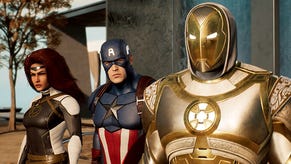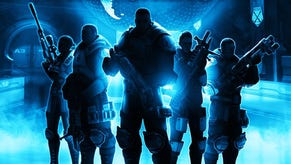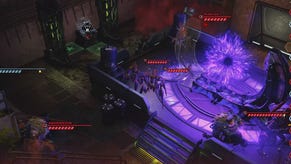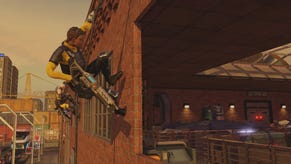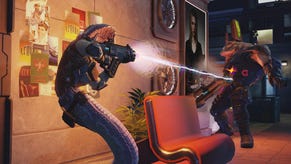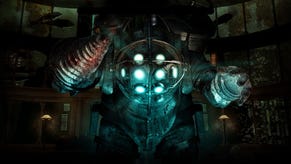Interview - XCOM's Jonathan Pelling
With the exception of a certain single most popular subscription-based fantasy MMO in the entire world, radical genre reinventions and videogames have something of a checkered past. In the eyes of many, it's like tracking mud all over holy ground, lighting a national flag on fire, or saying Firefly was overrated. In other words, a criminal offense of the highest order.
That, however, did nothing to dissuade 2K from taking the reigns to XCOM and steering it in an entirely new direction. Bye bye, turn-based strategy game. Hello, first-person shooter. 2K just painted a big red target on its back, angered a bull, then allowed itself to be chased into a minefield full of hornets' nests. But was it worth it?
Creative director Jonathan Pelling sure seems to think so. We had a chance to sit down with him during E3, and - while we're not entirely convinced just yet - he spoke with the kind of conviction that only plenty of thought and a determined, consistent direction can produce. From the sound of things, XCOM is in good hands. But enough from us. Pelling's words speak for themselves. Click past the break to hear his thoughts on why XCOM may be truer to the franchise than the original X-Com, what the deal is with those blob aliens, what 2K's doing to create a strategic first-person shooter, and tons more.
[Interview by Nathan Grayson]
VG247: Your game is called XCOM, but honest to God, it looks nothing like X-Com. Why bring XCOM back as an FPS? Why bring back such a cult classic license in a way that risks p**sing off its most dedicated fans?
Jonathan Pelling: Well, I sort of count myself as one of its biggest fans, so I guess I can understand why people might not think that a first-person shooter is a great idea. But I think it actually is a great idea.
And you said that it doesn’t look anything like [X-Com]. I agree with that. But it does feel a lot like it. It’s one of our primary objectives: that feeling. I loved playing the original game, and I loved the tension and the fear and mystery. All those things – the pillars of this game – it’s going to be a scary game. It’s a game where you’re in charge. You’re gonna make decisions. You’re gonna go out into the field and face really deadly enemies. You can never expect where it’s gonna come from, or what it’s gonna do next.
So I think it’s really preserving the essence of what was great about the original game, while bringing it in a new and exciting way. I think the first-person shooter is almost ideal to get those diverse feelings across.
But why not bring it back as a straight-up turn-based strategy game? Is FPS XCOM truer to X-Com’s intent than X-Com?
Personally, for all those reasons I described, I think it’s better to put you on the ground. It’s a really intriguing prospect. The important thing for me is to preserve those feelings that you have – rather than trying to preserve individual mechanics.
How was the initial reaction to the XCOM announcement? Was it more positive or negative than you were expecting?
I was expecting a reaction. A lot of the people who have seen the game are really positive about it. The people who don’t know too much about the game – you know, big fans of the original – just assume the worst. So I’m excited to show people like that what we’re doing.
Will XCOM have little gray people aliens? So far, I’ve seen blob monsters and what appeared to be a weaponized version of the Washington Monument, but no classic X-Com alien designs.
We set out not wanting to replicate the enemies from the original game. Nor did we really want to play to existing stereotypes of what aliens might be like. So we’ve come up with a really unique direction for these enemies. And the reason we’re doing that is to create genuine mystery. If people think they know what’s gonna come next or think they understand the enemy, then there’s no mystery there. They can assume and maybe be right.
If we put a little gray alien into the game, you’re gonna encounter that guy and you’re gonna know he’s gonna carry a weapon and shoot at you. Whereas abstract enemies with abstract forms that transform that move in different ways – I think that’s a great way to build a mystique about an enemy that you want to unravel.
You’ve said that your game’s strategic, but how so? Can you explain what makes it a strategic FPS?
You never leave first-person, but fans of the original game will recognize the base. That’s a really important part of this game as well. It’s where you make all your decisions. Or, a lot of the decisions.
So you have a map and you have an intelligence center. And on this map are opportunities, which represent missions you can go on. These are dynamically generated opportunities with different kinds of things on them. So you’ll need to make decisions – exclusive choices between these opportunities. You’ll need to make sure you’re satisfying the state, you know? You need to get funding from somewhere. You’re an FBI division, so you need to make sure you’re doing a satisfactory job. You need to make sure you have enough alien resources – like research and Elerium, which is like an alien energy source. It’s used to power the technology you’re operating. And you’re gonna need to make sure the people out there are getting help – are getting saved from these enemies.
So all these things are manifest in opportunities, and you have to make a decision. “Do I need funding?” “Do I need Elerium?” “How’s my research situation?” That’s where the strategy comes into play. Those are exclusive choices – or can be – and if you fail, you have to live with those consequences. That’s where the essential strategy comes in.
Of course, then you have to go out into the field and enact your plans. So you’ll make decisions, but there’s no guarantee of success.
Specifically, what kind of consequences could occur if you chose one mission objective over another while back at the base? Will characters die? Can plot threads end prematurely as a result of your actions? Are there multiple endings to the game?
I can’t go into too much detail about the storyline, but I can say there’s no branching plot to the game. It’s very down to interfacing with the characters you interact with, and how they react to this threat.
But a lot of the story is actually mined out by the player through the research mechanic. Every bit of research that you do is a piece of the puzzle. Depending on how you approach that and in what order you try to do things, you’ll get a very different experience.
Have you included any winks or nods to previous X-Com games? What are you doing to ensure previous X-Com fans will enjoy it?
Well, I think primarily in my mind, the original game was the best game in the series. All of the things I’ve talked about are heavily inspired by that game. The fear, the tension, the mystery, the space, the strategizing, the research, the unknown enemy, the cool weapons and technology. All of that stuff is there. All of that stuff is key to being XCOM. And I think it’s going to make for a really exciting first-person shooter.
Is there going to be a multiplayer component to the game at all?
No multiplayer.
You’ve put heavy emphasis on the game’s research system. How will it work in-game? Are certain weapons required to defeat certain enemies? Is it a sort of Mega Man-style progression from boss-to-boss?
The first time you run into enemies, you don’t know their capabilities. Only through research will you sort of find out what kind of technology will help you defeat them. So that’s all I can really say about that right now.
Ok, how about the 1950’s style? That’s another big change. What’s the inspiration behind that?
Well, there are a lot of inspirations that we’re drawing from. We’ve looked a lot at illustrators from the 1950’s, advertisers from the 1950’s. We’re doing that to create this perfect American dream. Something that never really existed, but it’s this very beautiful and idyllic setting. And that’s really important, because you [inaudible] this perfect environment, a colorful world where everything should be happy and nice. We’re placing these very out-of-place, abstract enemies. So it’s a real clash of two worlds. It makes very clear what you’re trying to save.
On that note, this is your second game that’s a strategic first-person shooter with 1950’s roots. BioShock 2 was, of course, the first. XCOM, at least, from the outside looking-in, is well within your supposed comfort zone. As a result, Internet cynics have begun to declare your studio one-dimensional. What do you say to them?
I’m not sure I agree with that, because what’s the alternative? Be more generic? The studio chooses really vibrant and iconic styles. And, you know, I can’t predict what’s going to happen in the future, but the decision to go with the 50’s for XCOM was not based on any decision that was taken previously from BioShock or anything like that. It was based on its own merits, and I think it’s a huge success. There’s no one else doing games that look like this right now.


